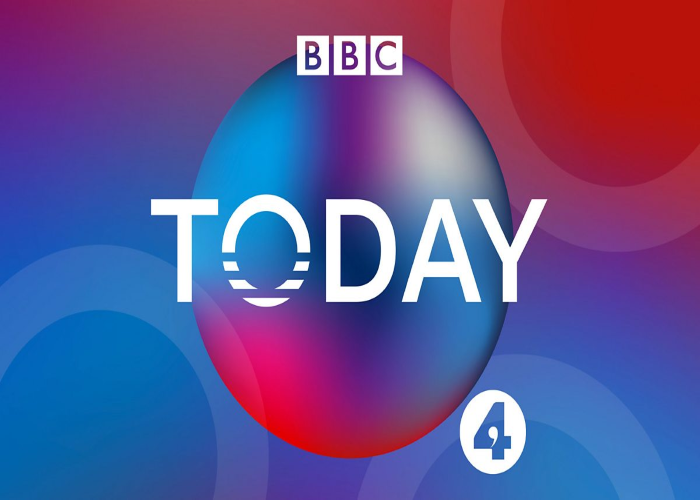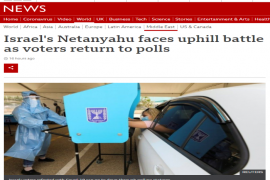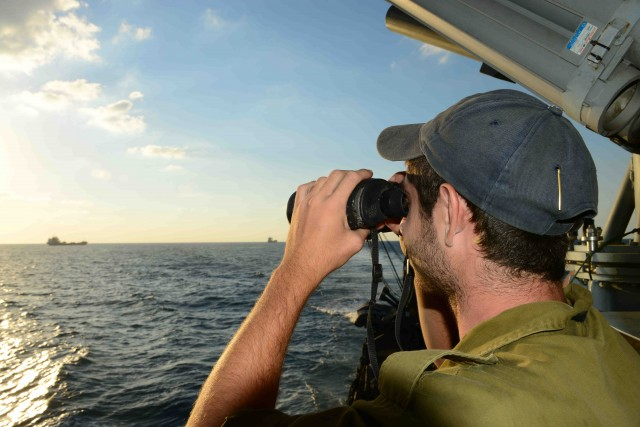Listeners to the December 10th edition of BBC Radio 4’s ‘Today’ programme heard an item (from 1:36:15 here) which was introduced by presenter Justin Webb as being about a “dangerous and potentially destabilising military clash”. [emphasis in italics in the original, emphasis in bold added]
Webb: “How close is the world to another potential conflagration – another dangerous and potentially destabilising military clash? This one not over Taiwan or Ukraine but over Iran. There are reports of high-level talks between Israel and the United States about plans to bomb Iran if the talks that have been going on over its nuclear programme fail.”
Webb refrained from identifying the reports upon which his dramatic claim about “plans to bomb Iran” were based but previously Reuters had reported that:
“U.S. and Israeli defense chiefs are expected on Thursday to discuss possible military exercises that would prepare for a worst-case scenario to destroy Iran’s nuclear facilities should diplomacy fail and if their nations’ leaders request it, a senior U.S. official told Reuters.”
In other words, the ‘Today’ programme’s framing turned discussions about “possible military exercises that would prepare for a worst-case scenario” into “high-level talks…about plans to bomb Iran”.
Having described “the signals being sent from Vienna” – where talks between Iran and JCPOA partners are taking place – as “pretty dire”, Webb brought in the BBC’s chief international correspondent Lyse Doucet and asked her “what progress, if any, has been made” in those talks.
Doucet had no concrete information to provide to BBC audiences on that topic but also went on to reference unidentified “reports”.
Doucet: “And yes, Israeli delegation in Washington, with reports that they are also looking at military options. Is that to put pressure on Iran, which is being accused now of breaking away significantly from compliance with the deal, enriching more uranium to a percentage which allegedly seems to put them closer to…towards a nuclear weapon, which Iran denies?”
While BBC coverage of the 2015 JCPOA has long promoted Iran’s denials as to the intentions behind its nuclear programme, Doucet’s unnecessary use of the qualifying term “allegedly seems” in relation to uranium enrichment to 60% is clearly unhelpful to BBC audiences trying to understand the story.
Based on the IAEA report from November 2021, the Institute for Science and International Security notes that:
“The IAEA’s latest report details Iran’s rapidly advancing nuclear activities and steps to limit IAEA monitoring, indicating the inspectors’ diminished ability to detect Iranian diversion of assets to undeclared facilities. At the same time, the IAEA has made no progress on resolving outstanding safeguards issues relating to the presence of undeclared nuclear material and activities in Iran. […]
During this reporting period, Iran continued to produce 60 percent enriched uranium, or HEU. This level of enrichment is associated with a key step in the traditional stepwise process of climbing from natural uranium to 90 percent enriched uranium, or WGU. Iran also instituted the production of HEU, albeit on a limited scale, by feeding 20 percent enriched uranium into a small number of IR-4 and IR-6 centrifuges.
Sixty percent enriched uranium can be used directly in nuclear weapons. About 40 kg (U mass) is more than enough to make a nuclear explosive, compared to the less than 25 kg (U mass) of 90 percent enriched uranium the Institute uses as sufficient for Iran to manufacture a nuclear explosive. Iran’s accumulation of 60 percent enriched uranium remains a highly provocative, dangerous step.”
The spokesman for the Atomic Energy Organisation of Iran stated last month that:
“We have more than 210 kilograms [463 pounds] of uranium enriched to 20 percent, and we’ve produced 25 kilos [55 pounds] at 60%, a level that no country apart from those with nuclear arms are able to produce.”
Clearly Doucet’s framing of Iran “being accused” of “breaking away significantly from compliance with the deal” (which barred enrichment above 3.67%) is redundant.
Webb then introduced Sir Richard Dalton as a former British ambassador to Iran until 2006. Listeners were not informed of Dalton’s record of connections to British-Iranian trade organisations.
Webb once again engaged in speculation about “an attack on Iran”:
Webb: “What would happen if there were to be an attack on Iran? How could it unfold, do you think?”
Dalton: “There would be retaliation across the Middle East from Iran and from its allies in the region. So the already dire situation in the Middle East would get a great deal worse, not least for the residents of Israel and particularly northern Israel, as a result of an attack mounted from Lebanon by Hizballah.”
It would of course have been useful for listeners to be reminded at that point of the fact that Hizballah is a terrorist organisation and an Iranian proxy rather than a mere ‘ally’.
After Dalton had claimed that “there are other options for the negotiating parties before they get to the point of going for a military solution”, Webb asked:
Webb: “…surely the Israeli government know those dangers that you have just gone into and if they decide that the bigger danger is to allow the Iranians to make further progress towards a nuclear weapon – if that is what they are doing – then they’re in a better position than anyone else to know what the balance of risks is.”
Dalton: “Yes but their tactic is to bring in the United States on their side because of the cast-iron nature of the security guarantees which the United States gives Israel.”
Dalton went on to say:
Dalton: “But the important factor is that, as the head of the CIA William Burns said a few days ago, there is no evidence of an Iranian decision to seek a nuclear weapon.”
Reuters reported Mr Burns’ remarks as follows:
“Central Intelligence Agency Director Bill Burns said on Monday that the CIA does not believe Iran’s supreme leader has decided to take steps to weaponize a nuclear device but noted advances in its ability to enrich uranium, one pathway to the fissile material for a bomb.
Burns cautioned that, even if Iran decided to go ahead, it would still require a lot of work to weaponize that fissile material before attaching a nuclear weapon to a missile or other delivery system.
“But they’re further along in their mastery of the nuclear fuel cycle and that’s the kind of knowledge that is very difficult to sanction away or make disappear, as well,” he said.”
Later on, listeners heard Dalton claim that:
Dalton: “The Supreme Leader [in Iran] calls the shots as ever and his policy is return to the JCPOA and to stick by Iran’s determination not to have nuclear weapons but to get significant sanctions relief.”
In summary, in this item BBC Radio 4 listeners heard the usual, and by now unsurprising, amplification of Iranian denials concerning its nuclear programme together with added promotion of the notion of an imminent “military clash” that is in fact currently mere speculation.






Doucet obviously is aware of the tie-up between the BBC and Iran – so each of her words are monitored, before publication, to ensure that the Iranian propaganda machine approves their narrative in advance. Not that I am a conspiracy theorist !